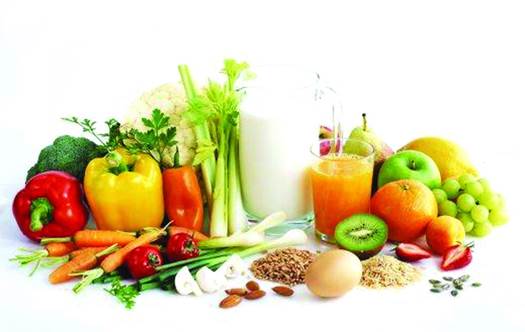1. Beat bad habits
‘If you’re a non-smoker, that’s good –
smoking poisons your eggs and brings on an early menopause’, says Fleming.
Cannon agrees: ‘Smoking is a no-no when it comes to fertility and is said to be
the cause of 13 per cent of infertility worldwide. On average, smokers require
twice the number of IVF cycles as non-smokers’. If you stull smoke, see your
doctor for help quitting. ‘If you must drink, you should keep it minimal in the
first half of your cycle, cut its better not to drink at all for healthy eggs’,
says Glenville, ‘Caffeine can delay conception and increase risk of miscarriage
so it’s best to cut it out. If you really must have some, green tea’s the best
option – it has enough caffeine for a kick but at much lower levels than
coffee, and it’s also rich in antioxidants’.

Smoking
is a no-no when it comes to fertility and is said to be the cause of 13 per cent
of infertility worldwide.
2. Tackle weight issues
‘Increased weight is associated with
reduced fertility’, says Cannon. ‘In fact, the latest evidence suggests being
either extremely over- or underweight may have a negative impact on fertility.
Body fat helps convert the male hormone androgen into estrogen – so having too
little fat can affect your cycle. But if you’re overweight, you may develop
insulin resistance, which can lead to an overproduction of the hormone leptin.
This can contribute to irregular or absent ovulation’.
‘I was very overweight for most of my adult
life’, says Eva Thomas*, 37. ‘My partner and I had been trying for a baby for
two years with no luck, and my GP advised me to lose weight. So I embarked on a
diet and lost four stone. Three months ago, two months after I reached my goad
weight, I discovered I was pregnant. I’m sure my weight loss played a big part
in part’.
3. Overhaul your diet
‘Your diet is the foundation of your
health, so cut out additives, preservatives and junk food, and reduce your
intake of sugar and white flour’, says Glenville. Canon advises focusing on
eating as many natural and seasonal foods as possible. ‘Don’t obsess about food
or be too controlling, as it’s importing you feel good about your diet’, she
says. ‘But eat regularly, and include plenty of vegetables, beans and legumes,
oily fish and grains. Enjoy rich foods such as meat or dairy in moderation.
Slow down and chew thoroughly’. It’s also a good idea to go organic, says
Glenville. ‘This minimizes the number of “alien estrogens” you come into
contact with’, she says. ‘These are found in pesticides and other chemicals
sprayed on crops, and can interfere with your own hormones. If you can only go
partially organic, opt for grains such as rice and oats – which have a smaller
surface area so absorb more chemicals and fragile foods including berries and
lettuce, which are sprayed heavily’.
Lisa Merritt*, 40, embarked on a healthy
eating plan two months before starting IVF earlier this year. ‘I cut out all
caffeine and alcohol, and included loads of super foods such as chia seeds,
quinoa, gojl berries and avocados’, she says. ‘I ate low-GI carbohydrates and
organic meat, fish and eggs. I only had one viable egg so the chances of the
IVF working were very low but, amazingly, I’m now eight weeks pregnant. I’m
convinced my diet had a lot to do with that success’.
4. Load up on fertility super nutrients
‘Eat plenty of fresh fruit and veg for
vitamins, minerals, fiber and antioxidants’, says Cannon, ‘Nuts, seeds,
avocados and oily fish are good sources of essential fatty acids, which help
balance hormones and nourish all the cells in your body. Lentils, beans and
pulses help with hormone regulation, with tofu and tempeh being particularly
good for balancing sex hormones. Grains help even out blood sugar and give you
sustained energy, while small amounts of meat are a good source of protein and
iron’.
Additionally, Glenville suggests taking
supplements to boost egg quality. ‘You need to use nutrients at a higher level
to increase fertility’, she says, and recommends her won formulation, Fertility
Support for Women ($44.75 for 60 capsules; naturalhealthpractice.com). Or try
Vitabiotics Pregnacare Conception ($12.75 for 30 tablets; boots.com), shown in
studies to improve chances of conceiving through IVF. Among other nutrients,
these supplements contain vitamin B12 and foliate, for preventing neural tube
defects. ‘It’s also a good idea to take a separate vitamin C supplement and
omega-3 fish oil, to help with hormone balance and reduce the risk of
miscarriage’, says Glenville.

Eat
plenty of fresh fruit and veg for vitamins, minerals, fiber and antioxidants
5. Address stress
‘Too much stress plays havoc with your
hormones, as well as your weight, sleep, libido and relationships’, says
Cannon. ‘Researchers at Oxford University discovered an association between
high levels of stress and reduced chances of a woman conceiving during the
fertile days of her cycle’. Canon recommends mindfulness meditation – just sit
and quietly focuses on your breathing, observing your thoughts coming and
going. Or try moving forms of mediation, such As T’ai Chi or qi gong. ‘If
there’s anything stressful going on in your life, see if you can take steps to
minimize it’, advises Glenville. ‘Some people are natural worriers, regardless
of what is happening externally. Vitamin B can help your body cope with stress
even if you can’t banish the anxiety, which hypnosis, reflexology and massage
can also help you manage it. Finally, avoid reading negative reports about
fertility in the presses.
6. Tweak your exercise regime
‘Exercise is important – it helps you keep
to a healthy weight and can reduce stress but don’t overdo it’, says Glenville.
‘Strenuous training can stress your body, so keep it moderate. Try walking or
using an X-trainer rather than running. Swimming, yoga and qi gong are also
beneficial’.

Try
walking or using an X-trainer rather than running
What’s your fertility personality?
Stress affects fertility so discover how
you respond to pressure, says Cannon, and boost your chance of conceiving
All heart
You’re engaged, excited and enthusiastic,
and wear your heart on your sleeve. Your optimism can help you keep that
all-important positive mind-set when trying to conceive, but the downside is
you can also experience huge crashes.
Top tips for you: Conserve your energy by
making time to sit quietly each day; meditate and do yoga; light candles and
wrap up warm; sit rosebud tea.
The thinker
You have high self-esteem, are attentive,
conscientious, and serene and poised. But when you’re under stress you tend to
overanalyze the situation and worry, and you can easily obsess about your
fertility.
Top tips for you: Eat regularly to keep
your mood stable; go for frequent walks to ground you; avoid talking too much
about your problems but ask others for things you need.
The perfectionist
You are creative, unflappable, great at
organizing things and efficient. But if things don’t go as well as you’d like,
it can be a problem. You can see fertility issues – or not being where you want
to be in life as a huge catastrophe.
Top tips for you: De-clutter your home to
reduce stress and make space for the new; spend time in natural; look at how
you’ve turned around difficult situations into positives.
The visionary
You question and search for the truth,
you’re resilient, imaginative and emotionally powerful, but may lose confidence
under excess pressure and fear you’ll never have a baby/
Top tips for you: Slow down and resist the
temptation to do too much; connect with others through yoga and creative
writing classes; watch out for critical thoughts (whether they’re of yourself
or others).
The planner
You have a clear vision for your life, have
loads of energy and are great at motivating others. But is things haven’t gone
your way, you can become frustrated and angry.
Top tips for you: Have regular neck and
shoulder massages to relieve stress; try relaxing aromatherapy oils; work on
empathizing with others; if you must plan, schedule in some things you enjoy.